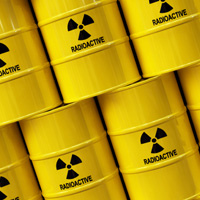-
Grants
38
-
Total Awarded
$15,726,756
-
Years
1990 - 2023
-
Categories
Grants
Founded in 1989, Stimson Center is a leading voice on urgent global issues. This award supports Stimson's China Program in its U.S.-China Sanya Initiative, a top-level dialogue between former military officials from the United States and China. Outcomes include an open channel of communication between the United States and China on issues related to international peace and security, and continued dialogue between the two countries.
The Stimson Center is a nonpartisan policy research center based in Washington, D.C. that delivers pragmatic policy solutions on major transnational dangers. This is a flexible award to advance Stimson’s nuclear-focused programming and support its work as a key organization in the nuclear field. The intended outcome of this award is to empower Stimson to anticipate and react more effectively to the current policy environment in order to reduce nuclear risks.
Founded in 1989, the Stimson Center is a nonpartisan think tank dedicated to enhancing global peace and economic prosperity by identifying pragmatic solutions to current and emerging global challenges. This award supports the Security for a New Century project, a congressional education forum that will foster nonpartisan, not-for-attribution dialogue around foreign policy challenges, via briefings and study group sessions for members of Congress and staff. Intended outcomes include: enhanced information sharing on critical issues of foreign policy, including nuclear policy; increased collaboration across partisan divides through bipartisan briefings; and new, durable collaborative relationships between House and Senate offices and the external expert community.
The Stimson Center is a nonpartisan policy research center based in Washington, D.C. that delivers pragmatic policy solutions on major transnational dangers. This award is a transfer grant from the Center for Arms Control and Nonproliferation (CACNP) to the Stimson Center in support of the Fissile Materials Working Group (FMWG). The Stimson Center changed the name of the FMWG to the International Nuclear Security Forum (the Forum), which will continue to pursue the FMWG’s goal to reduce the risk of nuclear terrorism by increasing collaboration in the expert community. The Forum works with new stakeholders, builds stronger bridges to international experts, provides timely information to its members, and strengthens stakeholder knowledge and capacity.
The Stimson Center is a nonpartisan policy research center based in Washington, D.C. that delivers pragmatic policy solutions on major transnational dangers. This award supports analysis of the North Korean sanctions regime, which is a key component of the diplomatic engagement process with the United States. By focusing on underexamined aspects of the sanctions regime, Stimson aims to contribute to the effort to reduce nuclear risks posed by the North.
The Stimson Center is a nonpartisan policy research center based in Washington, D.C. that delivers pragmatic policy solutions on major transnational dangers. This award supports Stimson to explore the past and future of nuclear risk reduction efforts. Through analysis, convening, and publication, it aims to develop a new organizing principle that identifies how best to make progress toward reducing nuclear dangers.
The Stimson Center is a nonpartisan policy research center based in Washington, D.C. that delivers pragmatic policy solutions on major transnational dangers. This award is for flexible support to advance Stimson’s U.S.-Korea-focused programming. In particular, flexible support to Stimson makes it possible for it to nimbly pursue its goals of improving the quality of debate about North Korea and reducing nuclear risks.
Founded in 1989, the Stimson Center is a nonpartisan think tank dedicated to enhancing global peace and economic prosperity by identifying pragmatic solutions to current and emerging global challenges. This award supports the Security for a New Century program, a Congressional education forum that will foster nonpartisan, not-for-attribution dialogue around foreign policy challenges, via briefings and study group sessions for members of Congress and staff. Intended outcomes include: enhanced information sharing on critical issues of foreign policy, including nuclear policy; increased collaboration across partisan divides through bipartisan briefings; and new, durable collaborative relationships between House and Senate offices and the external expert community.
The Stimson Center is a nonpartisan policy research center based in Washington, D.C. that delivers pragmatic policy solutions on major transnational dangers. This award is for flexible support to advance Stimson’s nuclear-focused programming. The intended outcome of this award is to empower Stimson to more effectively anticipate and react to the current policy environment in order to reduce nuclear risks.
The Stimson Center is a nonprofit, nonpartisan institution dedicated to offering practical solutions to problems of national and international security. This renewal grant seeks to reduce nuclear dangers in South Asia, where the risk of a nuclear-tinged crisis or conflict between India and Pakistan is growing. Key programming activities include: policy-relevant research and writing; fieldwork; convening meetings in Washington and the region; mentoring a rising generation of talent in India and Pakistan; and growing the audience for and participation in the center's South Asian Voices website and its on-line course on nuclear weapons and arms control in South Asia.
The Henry L. Stimson Center (Stimson) is a non-partisan think tank dedicated to helping improve peace and human security. Stimson’s Mekong Policy Project promotes sustainable development in the Mekong Basin, emphasizing an integrated approach to transboundary water resource management. This award helps to sustain its program of work to minimize the negative impacts of uncoordinated hydropower development across the Mekong Basin, from China to the Vietnam delta. Framing the hydropower development issue as a threat to regional cooperation and, potentially even regional stability, is a critical complement to on-the-ground conservation activities.
The Stimson Center is a nonpartisan policy research center based in Washington, D.C. that delivers pragmatic policy solutions on major transnational dangers. The award draws on a previous project that examined the role of industry in the nuclear supply chain, which attracted significant policymaker and industry interest. This project aims to develop international standards for an integrated nuclear safety-security approach based on the varied and disparate efforts to date. It builds a business case that shifts the perception of security from a burdensome requirement to a value-added effort, minimizing risks and benefiting overall operations.
The Stimson Center (Stimson) is a nonpartisan policy research center based in Washington, D.C. that delivers pragmatic policy solutions on the major transnational dangers. Through field and archival research, and outreach to policymakers in national governments and the International Atomic Energy Agency (IAEA), this project examines how to more closely regulate extracted natural uranium that could be converted into fissile material and used for nefarious purposes. This award is part of an effort to strengthen nonproliferation measures and build the confidence and transparency that will be required for countries to reduce fissile material stockpiles.
The Stimson Center is a nonpro?t, nonpartisan institution dedicated to offering practical solutions to problems of national and international security. This renewal grant seeks to reduce nuclear dangers South Asia, where the risk of a nuclear-tinged crisis or conflict between India and Pakistan is growing. Key programming activities include: policy-relevant research and writing; fieldwork; convening meetings in Washington and the region; mentoring a rising generation of talent in India and Pakistan; growing the audience for and participation in the center’s South Asian Voices website; and setting up a new, open, on-line course on nuclear weapons and arms control in South Asia.
The Henry L. Stimson Center (“Stimson”) is a non-partisan think tank dedicated to helping improve peace and human security. Stimson’s Southeast Asia program has promoted sustainable development in the Mekong Basin, emphasizing an integrated, political-economy approach to transboundary water resource management. The project will focus on drivers and impacts of uncoordinated hydropower development across the Mekong Basin, from China to the Vietnam delta. It will frame the hydropower development issue as threat to regional cooperation.
The Stimson Center is a nonprofit, nonpartisan institution devoted to enhancing international peace and security through a combination of rigorous analysis and outreach. This grant renews a successful grant to Stimson Center for its Partners in Prevention Task Force. Stimson Center will work with its newly established consortium of dual-use technology manufacturers, insurance and risk mitigation firms, and with U.S. government officials to the White House and the Departments of Commerce, State, Defense, and Treasury to address evolving threats and opportunities in the nuclear proliferation realm. Funds would be used for partial salaries, honoraria for consulted experts, travel, workshops, and publications.
The Henry L. Stimson Center is a nonprofit, nonpartisan institution devoted to enhancing international peace and security through a combination of rigorous analysis and outreach to policymakers. It seeks to engage policymakers and other experts to craft recommendations that are cross-partisan, actionable, and effective. The purpose of this grant is to help Stimson build financial reserves and a communications strategy. This will allow it to enhance its long-term institutional sustainability.
The Henry L. Stimson Center (“Stimson”) will focus on drivers and impacts of uncoordinated hydropower development. Stimson will engage with high level decision-makers to present well-documented evidence that these planned dams threaten national food security, have serious socioeconomic impacts that may threaten domestic stability in some cases, and also result in inequitable transboundary impacts. We believe that framing the hydropower development issue as threat to regional cooperation and, potentially even regional stability will have more traction with decision-makers than conservation-based arguments.
The Stimson Center is a nonprofit, nonpartisan institution devoted to enhancing international peace and security through a combination of rigorous analysis and outreach. The purpose of this grant is to promote market-based industry solutions to the proliferation threat. Stimson will engage four discrete industry sectors about their role in the potential proliferation supply chain -- traditional dual use technology manufacturers, the US domestic radiopharmaceutical sector, the ocean borne shipping industry, and the insurance sector. Funds will be used for partial salary support, honoraria, travel, workshops, and publications. This grant supports the Foundation’s Nuclear Security Strategy, which aims to prevent nuclear terrorism.
To support a research project titled, South Asia's Nuclear Future (over three years).
To broaden and deepen understanding of the risks posed by the construction of hydropower dams on the Mekong River's mainstream.
In support of general operations.
To promote a cooperative nonproliferation environment in the Middle East.
In support of policy research on federal budget priorities for promoting national and international security (over two years).
To translate aspirations for protecting civilians from mass atrocities and genocide into preparation for concrete, effective and sustainable action (over two years).
In support of the Space Security Project to advance an international code of conduct for responsible space-faring nations (over two years).
In support of research on a code of conduct for space security and in support of international dialogues on South Asian nuclear security (over two years).
In support of a project to educate, inform and engage policymakers on cooperative efforts to secure and eliminate nuclear and biological weapons (over two years).
In support of the project U.S. Military Perspectives on the International Criminal Court: Identifying Key Issues and Actors.
In support of a program of congressional education and engagement on issues related to weapons of mass destruction and cooperative security in outer space (over three years).
To support research on the weaponization of space.
To support the Conference on National Missile Defenses and Transatlantic Relations: Consequences and Implications.
To support the Chemical and Biological Weapons Nonproliferation Project (over two years).
To support the Committee on Nuclear Policy.
To support the Coalition on Nuclear Danger.
To support the international NGO liaison activities of the Campaign for the Indefinite Extension of the Nonproliferation Treaty of 1995.
To support a research project on the nature of Russian arms control compliance problems.
To support Defense Spending, the Economy, and the Nation's Security: Adjusting to Lower Defense Budgets in the 1990s, a joint project with the Defense Budget Project (over two years).







